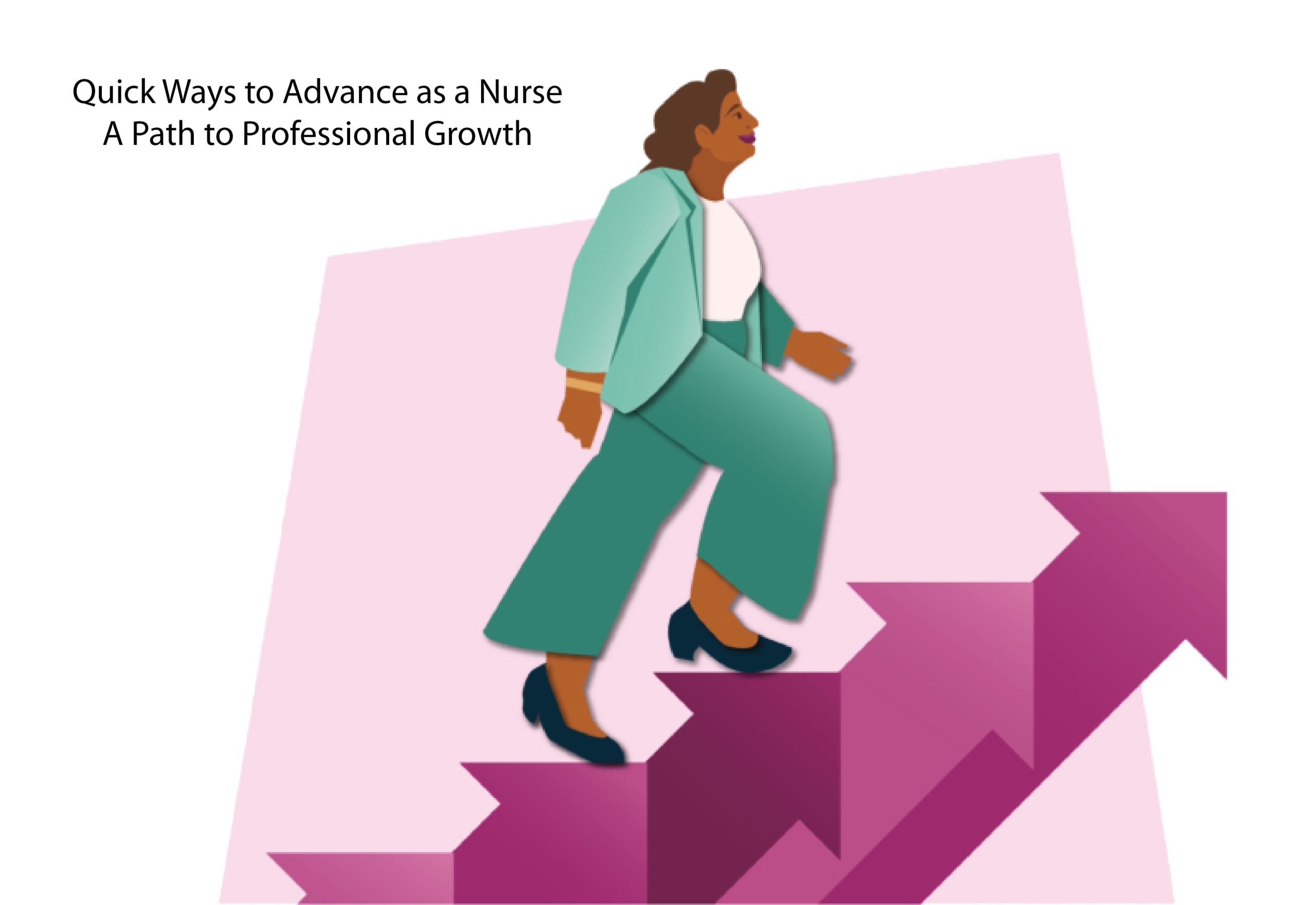7 Quick Ways to Advance as a Nurse: A Path to Professional Growth
Advancing as a nurse is an ongoing journey of professional development and growth. As healthcare evolves, nurses have numerous opportunities to expand their skills, knowledge, and impact. This comprehensive guide explores seven quick ways to advance as a nurse, drawing from expert insights and practical advice. Whether you’re a new nurse seeking to kickstart your career or an experienced practitioner looking to take the next step, these strategies will help you chart a path toward professional advancement.
Pursue Continuing Education
Continuing education is a key component of nursing advancement. Nurses should prioritize ongoing learning and pursue additional certifications, specialized training programs, and advanced degrees. We delve into the importance of staying current with the latest advancements in healthcare, expanding clinical expertise, and qualifying for higher-level positions.
Continuing education allows nurses to enhance their knowledge in specific areas of interest or develop new skills. Options for continuing education include attending workshops, conferences, or seminars, pursuing online courses, or enrolling in formal education programs. These opportunities boost professional growth and demonstrate a commitment to lifelong learning and continuous improvement.
Engage in Professional Networking
Building a strong professional network is essential for career advancement in nursing. We highlight the benefits of joining nursing associations, attending conferences, and participating in online communities. Engaging with peers, mentors, and industry leaders fosters collaboration, knowledge-sharing, and career opportunities.
Professional networking allows nurses to connect with colleagues with similar interests or work in specialized fields. It provides:
• A platform for exchanging ideas.
• Gaining insights from experienced professionals.
• Staying informed about industry trends.
Networking events and online forums offer opportunities to establish connections, seek advice, and find potential mentors who can guide and support career advancement.
Seek Mentoring and Preceptorship
Mentoring and preceptorship provide invaluable guidance and support for nurses at various stages of their careers. We explore the significance of seeking experienced mentors who can offer insights, advice, and career guidance. Preceptorship programs enable new nurses to receive hands-on training and mentorship from seasoned practitioners, accelerating their professional growth.
Mentoring relationships provide a nurturing environment for personal and professional development. Experienced mentors can share their knowledge, guide career decisions, and offer feedback to help nurses navigate challenges and achieve their goals. Preceptorship programs, often offered in healthcare organizations, provide structured mentorship experiences that allow new nurses to gain confidence, acquire practical skills, and foster professional relationships.
Volunteer for Leadership Roles
Taking on leadership roles within healthcare organizations can propel career advancement for nurses. We discuss the benefits of volunteering for leadership positions on committees, task forces, or professional organizations. By showcasing leadership skills, nurses can demonstrate their commitment to driving positive change and gaining visibility within the industry.
Leadership opportunities enable nurses to develop and refine their leadership abilities. Serving on committees or taking on project management roles demonstrates initiative, organizational skills, and the ability to influence decisions. These experiences contribute to personal growth and allow nurses to make a meaningful impact on healthcare delivery and shape the future of nursing practice.
Embrace Professional Development Opportunities
Nurses should actively seek professional development opportunities to expand their knowledge and skills. We explore the benefits of attending workshops, seminars, and webinars and engaging in self-directed learning through online courses and educational resources. Continual learning enhances competence, confidence, and adaptability in the rapidly evolving healthcare landscape.
Professional development opportunities provide avenues for acquiring new knowledge, refining skills, and staying updated with emerging trends and best practices in nursing. Workshops and seminars offer focused learning experiences on specific topics, while webinars provide convenient access to educational content from experts in the field. Self-directed learning through online platforms and educational resources allows nurses to tailor their learning experiences to their interests and needs.
Foster Specialization and Expertise
Specializing in a specific area of nursing can open doors to advanced practice and career advancement. We discuss the advantages of pursuing certifications and additional training in specialized fields such as critical care, geriatrics, pediatrics, or oncology. Specialization allows nurses to deliver high-quality care, pursue leadership roles, and command higher salaries.
Nursing specialization allows nurses to focus their expertise on a specific patient care area. Nurses gain in-depth knowledge, hone specialized skills, and become subject matter experts by pursuing additional certifications or advanced degrees in specialized fields. Specialization not only enhances career opportunities but also allows nurses to impact patient outcomes within their chosen field significantly.
Advocate for Professional Growth
Nurses should actively advocate for their professional growth and advancement. We explore the importance of setting clear career goals, seeking opportunities for advancement, and advocating for fair compensation and recognition. Nurses who take an active role in shaping their careers can create pathways for continuous advancement.
Advocating for professional growth involves:
• Setting personal career goals.
• Identifying opportunities aligned with those goals.
• Taking proactive steps to pursue them.
Nurses can seek out challenging assignments, express their career aspirations to supervisors and mentors, and advocate for professional development opportunities within their healthcare organizations. By actively engaging in self-advocacy, nurses can foster an environment that supports their career progression and rewards their dedication and expertise.
Conclusion
Advancing as a nurse requires a proactive approach to professional development. By pursuing continuing education, engaging in professional networking, seeking mentorship, volunteering for leadership roles, embracing professional development opportunities, fostering specialization, and advocating for growth, nurses can accelerate their career progression and significantly impact healthcare. The journey toward advancement is an ongoing process that requires dedication, curiosity, and a commitment to lifelong learning. By implementing these strategies, nurses can unlock their full potential and shape a rewarding and fulfilling career in nursing.







